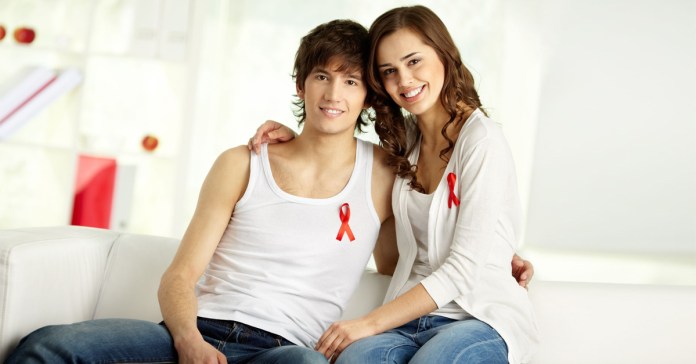The human immunodeficiency virus is the pathogenic agent behind HIV infections. When HIV contamination occurs, infection tends to develop gradually, over a period of several months.
When treatment is promptly offered, the virulence of the HIV virus is controllable, and the patient is able to live a long and productive life.
When treatment is denied for any reason, however, HIV infections quickly progress unopposed and develop into their advanced and fatal form – acquired immunodeficiency syndrome or AIDS, a condition in which the body’s immune system is decimated, leaving the body defenseless to infections and cancers.
How Does HIV Spread?
HIV is contagious, but it only spreads through infected blood, breast milk, and sexual fluids. Infection spreads when one of these bodily fluids finds a direct route into the bloodstream of an uninfected person.
This usually happens through an open wound, however microscopic, or the mucous membranes of the mouth, nose, genitals or rectum.
As straightforward as the methods of transfer of infection can seem, they cause endless confusion to people attempting to gauge their exposure risk. It can help to clear the air with a quick primer.1
HIV Does NOT Spread Through Casual Social Contact
Merely being around people with HIV does not cause the infection to spread. There is no risk of transfer through sharing dining utensils, toilets or sweat-drenched gym equipment.
Casual hugging and kissing are safe, as well. It is even safe to be around people who are HIV-positive in a mosquito-infested area. Mosquitoes do not transfer HIV infections through their bites.
You can get HIV no matter what your orientation, but practicing homosexual males are at higher risk of contracting HIV.
This does not mean, however, that those who follow a heterosexual lifestyle are not at risk. Roughly half of those who become infected are of heterosexual orientation.
All Kinds Of Sex Are Risky
Oral sex is less risky than genital sex. Nevertheless, unprotected oral sex still can provide a path of transfer to the pathogen.
It is not even safe to have unprotected sex when both partners have HIV. One could have a more virulent or drug-resistant form of the disease than the other.
For those who use injectable recreational drugs, it is important to remember that HIV can easily and quickly spread through the sharing of needles with infected people.
Regular Testing Is An Excellent Preventive Idea
Getting tested for HIV on a regular basis often seems a hassle to people, and for this reason, it is often skipped.
Regular testing is one of the simplest ways possible of preventing HIV. However, if your partner has HIV, it can be impossible to tell without a test.
In circumstances where such testing is not possible, one might use a DIY home test product. While these tend to be less reliable than proper laboratory tests, they can help in the pinch.
It’s Possible To Prevent An HIV Infection From Unsafe Sex
Some healthy people, by virtue of complicated life situations, tend to be at very high risk of contracting HIV. Sex workers are one such group.
While there is no vaccine available yet for HIV, there is a drug that can help the body resist HIV infections for as long as it is taken.
Called pre-exposure prophylaxis or PrEP, the drug is a highly effective way of staying safe in risk-prone circumstances.2A doctor’s appointment is all it takes to get a prescription.
Post-exposure prophylaxis or PEPs are easily available now, too. In the event of an unexpected unsafe sexual encounter such as sexual assault or a carelessly planned sexual encounter, starting on the 28-day course within three days can help minimize the possibility of an HIV infection.
HIV Can Spread From Mother To Fetus
To anyone planning a pregnancy, it is important to be especially careful about the spread of HIV. Since getting pregnant requires withdrawing the use of barrier contraceptives such as condoms, it can put a person at risk of HIV.
It is important, then, to get thoroughly tested before getting pregnant. When a pregnant woman is HIV-positive, there is a high level of risk of the disease spreading to the fetus, and it is a good idea to not consider pregnancy then.
References





